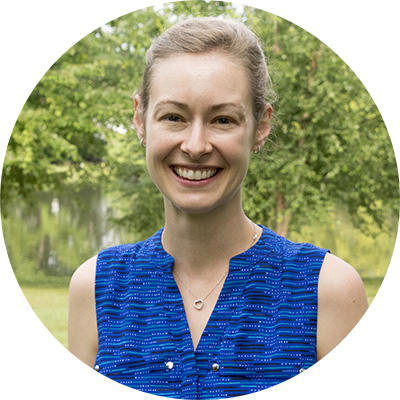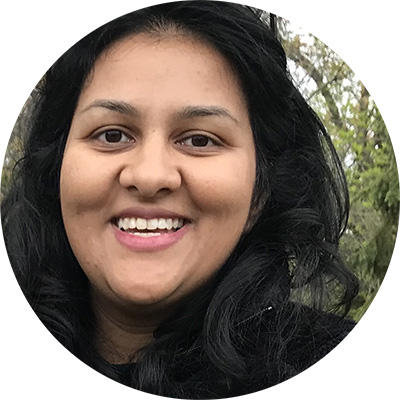
Global S&T Development Trend Analysis Platform of Resources and Environment
| Ask the scientists: GLEON | |
| admin | |
| 2020-11-17 | |
| 发布年 | 2020 |
| 语种 | 英语 |
| 国家 | 美国 |
| 领域 | 资源环境 |
| 正文(英文) |
An international team of researchers, community scientists, and managers is working together to understand and manage lakes around the world. The Global Lake Ecological Observatory Network (GLEON) includes over 170 lakes in 63 countries; its members are working together to reveal lakes’ response to environmental change. We would like to express our deepest gratitude to an anonymous donor who gave a generous gift of $200,000 to support this work. Cary’s Kathleen Weathers, a founding GLEON co-chair, was one of the network’s first leaders. She helped guide and grow GLEON from its infancy to a 900-member grassroots network with a focus on training the next generation of lake leaders. Weathers says, “To protect lakes and the essential resources they provide, we need to engage a diverse network of people, lakes, and data to learn how, where, and why they are changing. This gift will allow us to expand our network of people – our most valuable resource – to monitor lakes in places like Africa, South America, and India. With new ‘eyes’ on lakes around the world, we will be able to hone our collective understanding of lakes’ response to global changes.” Meet four GLEON members dedicated to this work: Abdou Bah, Doctoral StudentDepartment of Earth and Environmental Sciences at the Graduate Center of City University of New York  As a Co-chair of the GLEON Student Association, I help coordinate student social functions, workshops, and networking opportunities. Recently, I helped organize student workshops for a virtual 4-day GLEON meeting held in October. Workshops covered tools for lake modeling, data analysis software, and science communication. I am from Burkina Faso, where access to drinking water is a challenge during the dry season due to water scarcity. After graduating in geology, I worked in Direction General des Ressources en Eaux (DGRE), the government agency that manages water resources in Burkina Faso, to help address water scarcity issues. I then came to the US to pursue my master’s in water resource management. Someday, I hope my work can help solve water shortages around the world. My current research is looking at effects of climate and land use change on lake temperature variability globally, and what these changes mean for lake ecosystems. I look forward to assisting with data analysis for the GALACTIC (GlobAl LAke miCroplasTICs) project – a new GLEON research effort aiming to understand sources and ecosystem effects of microplastics in freshwater ecosystems. I am enthusiastic about the interdisciplinary nature of GLEON and its active student involvement. Over 30% of GLEON members are students and there are many opportunities for skill building and networking with scientists from all over the world. I look forward to contributing to GLEON’s future and learning new skills in limnology and computing. June Fichter, Executive DirectorLake Sunapee Protective Association, Sunapee, New Hampshire  GLEON members from the Lake Sunapee Protective Association (LSPA) are data providers. Our instrumented buoy records lake measurements like temperature and dissolved oxygen around the clock. We also support research teams at other sites, and use the data we collect to educate the public, acting as a bridge between research and the broader community. The reality of a global lake network dedicated to sharing data and collaborating is huge – with benefits for global freshwater health, for each lake station and country involved, and for the global community at large. GLEON is growing in numbers and breadth. As freshwater health becomes an increasingly critical issue, GLEON is providing insights into how we can safeguard this precious resource. Plus, GLEON offers opportunities for young and old researchers of all backgrounds to participate in this important endeavor for years to come. We at LSPA are excited to continue recording and sharing relevant lake data with the aim to protect our local lakes, connect the scientific community and the general public, and educate that public on how precious freshwater is and how to protect it. Cayelan Carey, Associate Professor of Freshwater Ecosystem ScienceDepartment of Biological Sciences, Virginia Tech  My first GLEON involvement was as an undergraduate in 2006 during the deployment of a monitoring buoy on Lake Sunapee, New Hampshire. It was extremely exciting to be involved in this international grassroots effort in its early years. I then moved to Sweden and worked on a lake that became part of GLEON while I was there. I returned to the US for my PhD, which brought me back to Lake Sunapee. I now oversee sensors in multiple GLEON reservoirs in Virginia, and all of my graduate students and postdocs are GLEON scientists. GLEON is my research ‘home'. Science-wise, I lead research at multiple GLEON sites and contribute datasets to many GLEON research efforts. I appreciate the opportunity to see how our beautiful, dynamic, human-made reservoirs in Virginia extend our understanding of how freshwater ecosystems work. I am inspired by the network’s genuine commitment to supporting early career scientists, sharing data and ideas across disciplines, welcoming new members, and facilitating collaboration with colleagues around the world. GLEON is in the hands of its members. It is exciting to see students and postdocs take on leadership roles, and the network is constantly evolving in response to new ideas and membership. Much of ecosystem science is increasingly tied to data science, so we need to make sure that we are using new techniques to both collect and analyze data. Supporting partnerships with computer scientists and engineers will enable new capacity in lake science. Sarika Sharma, Doctoral CandidateSyracuse University, New York  To share large datasets collected on lakes all over the world, GLEON collaborators rely on cutting-edge cyber tools. My research looks at how new processes for organizing data affect data sharing and use. I am interested in learning which data organization methods promote efficient data sharing. The most valuable aspect of the GLEON network is that it gives young scholars the reins to lead. Graduate students can organize teams, lead working groups, and shape the direction of research projects. That is unique and unprecedented in science. I am excited about the future research that comes out of GLEON. I am learning a lot about how our lake systems function and the human effects that are taking a toll on them. One memorable presentation described how road salt deposits affect lakes in Canada. It was eye-opening to see how lake systems can change over time due to human activity. I hope that my work brings useful findings to the organization. I also hope that I can partake in collaborative projects working to answer research questions from a social science perspective.
|
| URL | 查看原文 |
| 来源平台 | Cary Institute of Ecosystem Studies |
| 文献类型 | 新闻 |
| 条目标识符 | http://119.78.100.173/C666/handle/2XK7JSWQ/303214 |
| 专题 | 资源环境科学 |
| 推荐引用方式 GB/T 7714 | admin. Ask the scientists: GLEON. 2020. |
| 条目包含的文件 | 条目无相关文件。 | |||||
| 个性服务 |
| 推荐该条目 |
| 保存到收藏夹 |
| 查看访问统计 |
| 导出为Endnote文件 |
| 谷歌学术 |
| 谷歌学术中相似的文章 |
| [admin]的文章 |
| 百度学术 |
| 百度学术中相似的文章 |
| [admin]的文章 |
| 必应学术 |
| 必应学术中相似的文章 |
| [admin]的文章 |
| 相关权益政策 |
| 暂无数据 |
| 收藏/分享 |
除非特别说明,本系统中所有内容都受版权保护,并保留所有权利。
修改评论